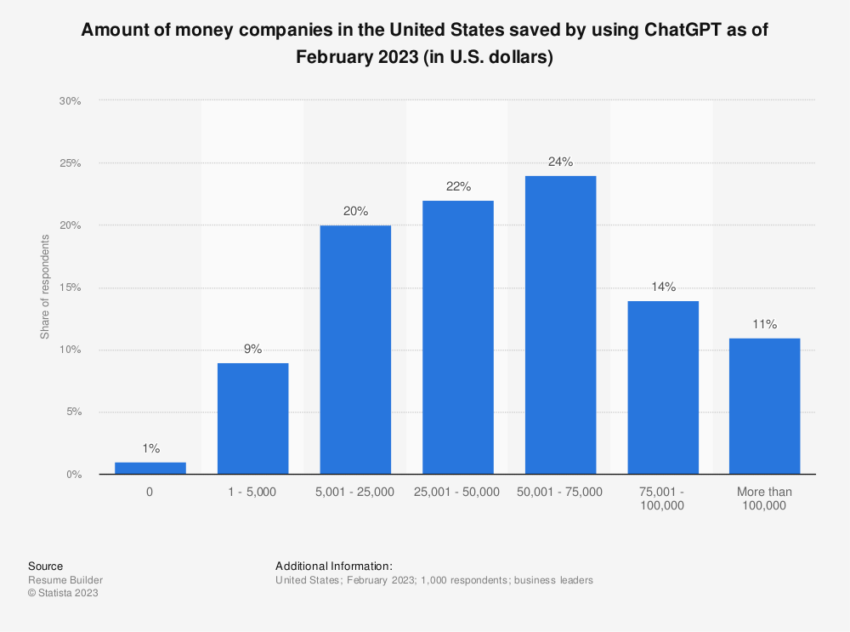In an era where digital technologies are reshaping industries, generative artificial intelligence (AI) stands at the forefront, revolutionizing the field of Web3 marketing. As tools powered by generative AI are increasingly adopted, they offer unprecedented capabilities to create content and enhance Web3 marketing strategies.
A recent study sheds light on this transformative trend. It offers profound insights into how marketers harness generative AI tools to bolster creative output, enhance efficiency, and expedite the Web3 marketing cycle.
AI Takes Web3 by Storm
Generative AI, an innovative branch of artificial intelligence, is imbued with the capability to fabricate diverse content forms. These include text, images, or videos instigated by human prompts. This technology has found a natural ally in Web3 marketing, a field ripe for disruption and innovation.
Web3, also known as Web 3.0 or the decentralized web, refers to the next generation of the internet that aims to build a digital environment where users have control over their own data and interactions. The concept is grounded in using blockchain technology and decentralized networks, giving rise to decentralized applications (dApps), smart contracts, and decentralized autonomous organizations (DAOs).
Therefore, Web3 marketing refers to the strategies and tactics used to promote products, services, or brands within the Web3 environment, built on decentralized networks and blockchain technology.
Last November, the Web3 marketing landscape witnessed a transformative moment with the introduction of ChatGPT. This is a generative AI chatbot by OpenAI, a renowned AI research firm. The technology can create content autonomously, redefining how marketing on the decentralized web.

In this rapidly evolving space, other key players are also emerging. These include Google’s Bard AI, Copy.ai, Jasper, Midjourney, and DALL-E 2. Therefore, these tools, powered by generative AI, may become instrumental in creating innovative and immersive Web3 marketing strategies.
According to projections by Allied Market Research, the global generative AI market is expected to skyrocket. This significant component of the Web3 marketing toolkit could reach an impressive $126.5 billion by 2031.
This represents a robust compound annual growth rate of 32% from 2022 to 2031. It further highlights the growing influence of generative AI in the unfolding era of Web3 marketing.
Key Insights for Web3 Marketers
Diving deeper into the dynamics of Web3 marketing and generative AI, a recent study unravels some pivotal insights. These findings shed light on the promising future that underscores generative AI’s transformative role in the burgeoning marketing landscape.
- Generative AI and Web3: Among businesses not yet utilizing generative AI, 31% plan to do so within the coming year and 46% within the next two years. 77% of these businesses anticipate adopting generative AI within this timeframe.
- Revolutionizing Web3 Content Creation: In the realm of Web3, generative AI is predominantly used for producing website copy. 48% of respondents expressed its likelihood of use now or in the future. Other potential applications include crafting email copy (44%), social media copy (42%), and social media images (39%). Moreover, customer-interactive chatbots (37%), website images (36%), SEO content (35%), blog posts (33%), and marketing/sales collateral (33%).
- Top Tools for Web3 Marketing: ChatGPT leads the pack as the most popular generative AI tool in Web3 marketing, used by 55% of respondents. Other notable tools include Copy.ai (42%), Jasper.ai (36%), Peppertype (29%), Lensa (28%), DALL-E (25%), and Midjourney (24%).
- Advantages of Generative AI in Web3 Marketing: The benefits marketers derive from using generative AI in the Web3 space include enhanced performance (58%) and greater creative diversity (50%). Additionally, cost efficiencies (50%), quicker creative cycles (47%), learning and improvement capabilities (39%), and augmentation of human creativity (34%).
- Overcoming Obstacles in Web3 Marketing: The primary hurdles in adopting generative AI in Web3 marketing include training team members, cost, and privacy/security concerns. This was highlighted by 50%, 45%, and 45% of respondents, respectively. Minor challenges include data scarcity (31%), poor content quality or inaccuracies (29%), and generative AI’s unethical biases (24%).
- Generative AI Boosts ROI in Web3 Marketing: 66% of companies using generative AI in Web3 marketing have witnessed a positive ROI. 43% reported at least a 2X ROI, and 22% confirmed a 3X ROI. A mere 7% reported a negative ROI thus far.
The Future of Web3 Marketing
The intersection of Web3 and generative AI could redefine the digital marketing landscape. The distinctive features of Web3, such as decentralization, are ushering in innovative marketing strategies and content creation methods.
AI-powered tools, such as ChatGPT and others, provide Web3 marketers with the means to generate various content, foster creative diversity, and accelerate creative cycles. Meanwhile, tackling the unique challenges and seizing the opportunities within the Web3 industry.
Nevertheless, as the industry strides towards this promising future, it is paramount for businesses to remain vigilant. Ethical considerations, data privacy, and security issues accompany this potent technology’s adoption. By maintaining this vigilance, Web3 marketers can harness the power of AI, fostering a more efficient and user-centric ecosystem.
Traditional SEO strategies such as link building continue to hold significance in the realm of Web3. However, these are adapting to the decentralized landscape. Link building in Web3 could mean establishing connections within blockchain networks, linking decentralized websites, or creating blockchain-based affiliations.
This incorporation of link-building into the decentralized structure further emphasizes the evolution of Web3 marketing strategies.
Disclaimer
Following the Trust Project guidelines, this feature article presents opinions and perspectives from industry experts or individuals. BeInCrypto is dedicated to transparent reporting, but the views expressed in this article do not necessarily reflect those of BeInCrypto or its staff. Readers should verify information independently and consult with a professional before making decisions based on this content. Please note that our Terms and Conditions, Privacy Policy, and Disclaimers have been updated.



